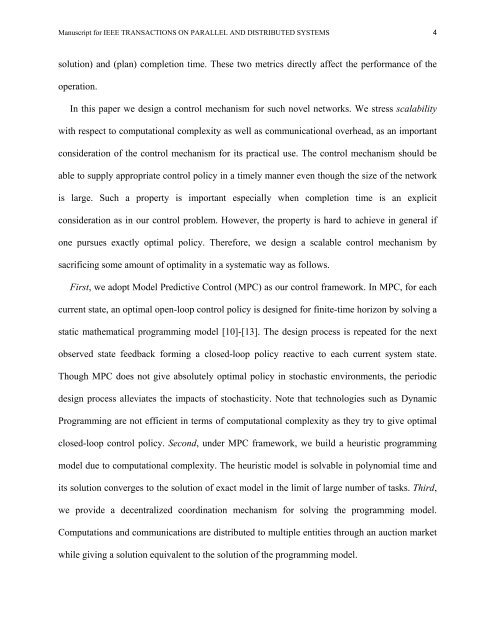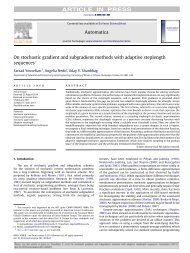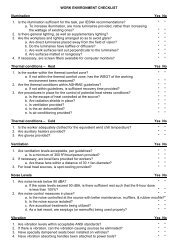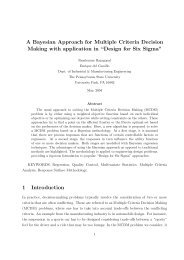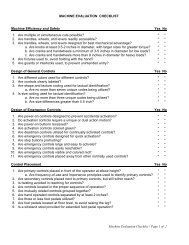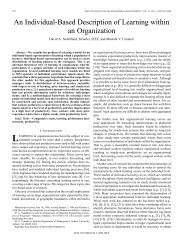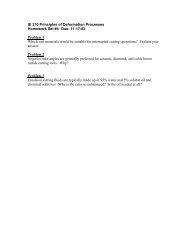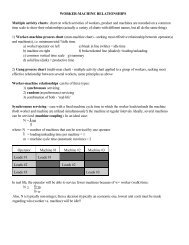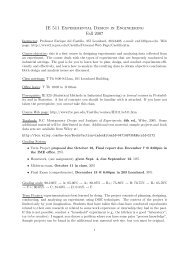DARPA ULTRALOG Final Report - Industrial and Manufacturing ...
DARPA ULTRALOG Final Report - Industrial and Manufacturing ...
DARPA ULTRALOG Final Report - Industrial and Manufacturing ...
Create successful ePaper yourself
Turn your PDF publications into a flip-book with our unique Google optimized e-Paper software.
Manuscript for IEEE TRANSACTIONS ON PARALLEL AND DISTRIBUTED SYSTEMS 4<br />
solution) <strong>and</strong> (plan) completion time. These two metrics directly affect the performance of the<br />
operation.<br />
In this paper we design a control mechanism for such novel networks. We stress scalability<br />
with respect to computational complexity as well as communicational overhead, as an important<br />
consideration of the control mechanism for its practical use. The control mechanism should be<br />
able to supply appropriate control policy in a timely manner even though the size of the network<br />
is large. Such a property is important especially when completion time is an explicit<br />
consideration as in our control problem. However, the property is hard to achieve in general if<br />
one pursues exactly optimal policy. Therefore, we design a scalable control mechanism by<br />
sacrificing some amount of optimality in a systematic way as follows.<br />
First, we adopt Model Predictive Control (MPC) as our control framework. In MPC, for each<br />
current state, an optimal open-loop control policy is designed for finite-time horizon by solving a<br />
static mathematical programming model [10]-[13]. The design process is repeated for the next<br />
observed state feedback forming a closed-loop policy reactive to each current system state.<br />
Though MPC does not give absolutely optimal policy in stochastic environments, the periodic<br />
design process alleviates the impacts of stochasticity. Note that technologies such as Dynamic<br />
Programming are not efficient in terms of computational complexity as they try to give optimal<br />
closed-loop control policy. Second, under MPC framework, we build a heuristic programming<br />
model due to computational complexity. The heuristic model is solvable in polynomial time <strong>and</strong><br />
its solution converges to the solution of exact model in the limit of large number of tasks. Third,<br />
we provide a decentralized coordination mechanism for solving the programming model.<br />
Computations <strong>and</strong> communications are distributed to multiple entities through an auction market<br />
while giving a solution equivalent to the solution of the programming model.


